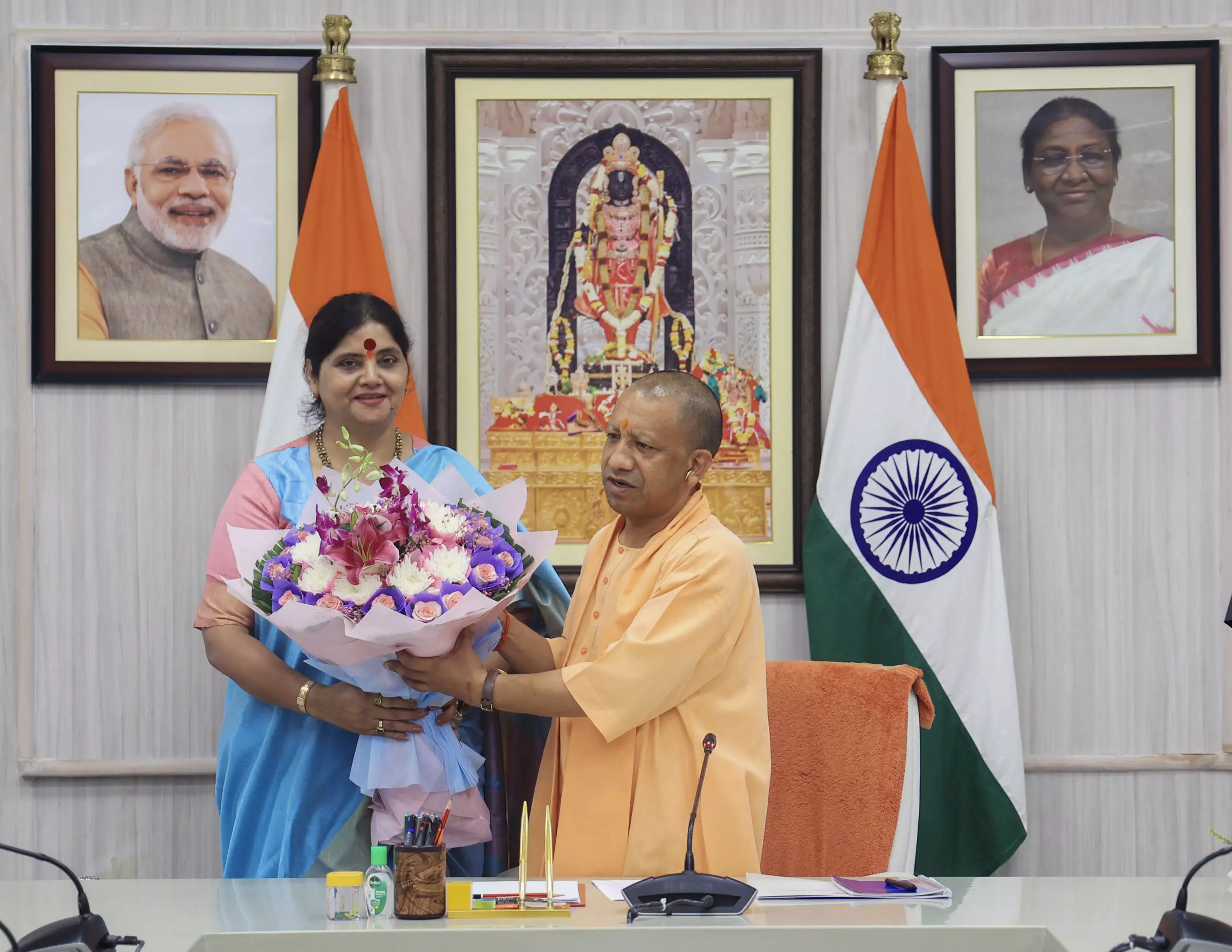Anita Anand | UP panel’s bid to keep women ‘safe’ appears to be misguided

There has recently been a brouhaha over a proposal tabled by the Uttar Pradesh State Women’s Commission to ensure the safety of all women across India’s largest state. With the goal of protecting women from a “bad touch” from men, it proposes that women must not be allowed to avail of services from male providers, such as tailors and those working in gyms, salons and teaching yoga. And that these providers should be women.
The UP Women’s Commission has not been in operation for two years, and during this time, almost 50,000 cases have amassed. Most of these are to do with domestic violence. In September this year, UP chief minister Yogi Adityanath had appointed Babita Chauhan, a long-time BJP member and the vice-president of the Uttar Pradesh unit of the BJP’s Mahila Morcha, as its chairperson.
It is commendable that the women’s commission has acted on women’s safety. However, proposals for policies must be based on data. The latest National Crimes Record Bureau (NCRB) report titled “Crime in India 2022” provides critical insights for legislators, governments and stakeholders involved in policy formulation and analysis. Data gathered from thirty-six states, Union territories, and Central agencies revealed a surge of four per cent in crimes against women, including cases of cruelty by husbands and relatives, abductions, assaults and rapes. It highlighted that a significant proportion of those involved in such crimes were the women’s husbands and his relatives.
Additionally, Uttar Pradesh registered the highest number -- 65,743 -- of cases of crimes against women. If the data suggests that a significant portion of crimes involved cruelty by the husband and his relatives, should the Women’s Commission not be looking into this? The commission has said that of late many complaints have been coming in from women about harassment at fitness centres and yoga classes.
It is to be expected. As a state, UP is fairly traditional with deeply entrenched regressive attitudes, especially towards women. But that is now being challenged. Due to a major push for girls’ and women’s education in the last decade, according to the 2021 National Family Health Survey (NFHS-5), the figures for education of girls and women increased appreciably, by about 2.48 million over the years 2017-19. At the same time, there was an absolute decline of 6.3 million women from the workforce, 2.5 times the increase of girls and women in education. Despite this, women are stepping out of their homes and signing up for gyms, yoga classes and other activities, and in this it is but natural that they will come in contact with men. And it is mostly men who staff these occupations, as it is with tailors. So, what should women do?
Women raised in traditional homes, and often segregated by sex, will find it hard to negotiate with men. The “bad touch” that the women’s commission refers to, was popularised some years ago with the speaking out of increasing numbers of sexual assaults of minors, especially girls. It refers to the inappropriate touching of our private parts. In India this is fairly common as women, both at home and in public places, do not feel safe. On the street, in buses, trains and workplaces there is harassment.
Despite the laws to protect children and women and increased awareness on these issues, the problems remain. Yet, policy makers and the public have not asked why this is so and maybe something else should be tried.
The most obvious place to start awareness building is in the school curriculum. There is now a substantial body of work which the chairperson and the commission can use to introduce this in classrooms in UP, as well as in colleges and universities. The cadre of the BJP’s Mahila Morcha could do door to door canvassing about the nature of inappropriate touch.
Banning something has never worked anywhere. Then there is the small matter of how many women gym trainers, tailors and yoga teachers are there? The same state that claims to believe in women’s empowerment finds it difficult to protect women in their homes and in public places.
Women too will have to learn to negotiate with men as they face the outside world. This is not easy, but it is the only way to survive. Learning to say no, being able to detect signs of possible harassment and then deciding how to move forward are skills that women will have to learn. Laws are not deterrent enough.
There is no woman-only planet in the near future. Segregation is not the answer. But what is possible is sensible policies by sensible policy makers, based on available data and then designing strategies to implement them. The BJP, like many political parties in India, has little experience in interventions other than schemes. There is no scheme to address “bad touch” or women’s harassment.
Most social changes in societies come with large awareness campaigns and face to face discussions in groups -- men with men, women with women, men with women – across the board. The BJP is well equipped to manage large awareness campaigns. It has a huge machinery behind it. It should use it. Other strategies such as public hearings, where women speak out in communities, could be organised by the women’s commission, in collaboration with local governing bodies such as municipal corporations and panchayats, so that more awareness is generated by decentralised governance bodies.
Touch is touch. We all crave a good touch and cringe at a bad touch. The women’s commission needs to do more homework and withdraw this proposal.
